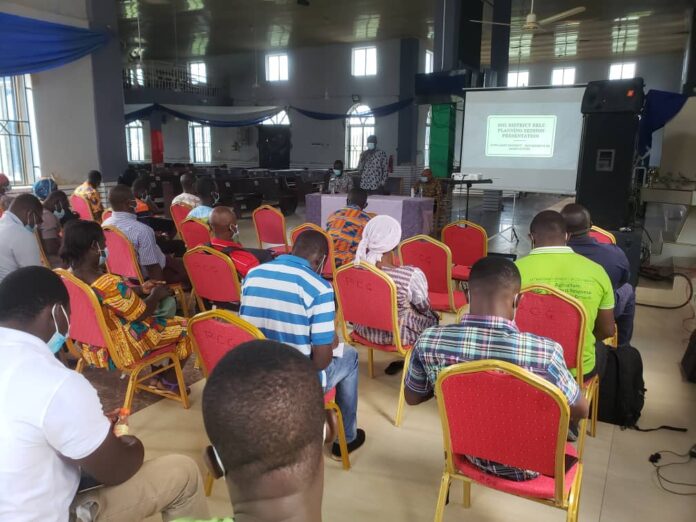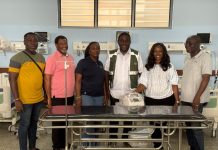Climate change and Covid-19 have undoubtedly affected Agriculture in recent times but the Atiwa East District Department of Agriculture in its quest to ensure that research activities, especially adaptive research respond to farmers and their constraints are identified through the District planning session held a Research Extension Farmer Linkage Committee session.
The session brought together the Hon. District Chief Executive, the Regional Monitoring and Evaluation, Agricultural Extension Agents, Agro Input Dealers, Actors of the school feeding programme and farmers.
Hon. Kwabena Panin Nkansah, the Atiwa East District Chief Executive said that he was delighted anytime he was called upon for anything concerning agriculture.
According to him, the role of agriculture could not be underestimated in the district and in the country as a whole.
He commended all stakeholders especially farmers for their good work and pledged the support of the District Assembly to see to the development of agriculture.
He encouraged stakeholders to participate in every activity of the session, as it will help plan towards solving constraints that hinders the progress of agriculture.
Mr. Samuel Ofosu, the Atiwa East District Director of Agriculture mentioned that the Ministry of Food Agriculture has a mission to promote sustainable agriculture and thriving agribusinesses through research and technology development, effective extension and other support services to farmers, processors and traders for improved livelihood. He added that to ensure that research activities, especially adaptive research and farmer’s constraints are identified, district planning sessions are necessary.
Mr Joseph K. Ahiaku; The regional Monitoring and Evaluation Officer commended the District Chief Executive for his continuous presence in all programs that was associated with agriculture. He admonished farmers and all stakeholders to feel free to participate in the RELC session because they were a representation of everyone associated with agriculture in the district.
Key activities planned and implemented to resolve previous years RELC constraints were presented. Participants had the opportunity to add to the constraints gathered during the Zonal RELC sessions and ranked constraints to be addressed by research, extension and policy.








































